Ready to launch your own podcast? Book a strategy call.
Frontlines.io | Where B2B Founders Talk GTM.
Strategic Communications Advisory For Visionary Founders
Conversation
Highlights
Sometimes the best startup ideas come from watching family members struggle. For Khaled Boukadoum, that moment came when his sister graduated from NYU Dental School. Despite years of clinical training, she faced a daunting challenge that her education hadn’t prepared her for: running the business side of a dental practice.
In a recent episode of Category Visionaries, Khaled Boukadoum, Founder of Torch Dental, shared how this personal insight led to building a digital supply platform that’s raised $49.5M in funding. But the journey from identifying the problem to scaling nationwide wasn’t straightforward – it required rethinking how to drive technology adoption in an industry known for its resistance to change.
The Supply Chain Reality Check
When Khaled and his team dove into dental practice operations, they discovered a surprisingly antiquated system. “The supply ordering side of things was pretty broken,” Khaled explains. “It was a bunch of whiteboards or pen and paper and Excel spreadsheets. And Excel spreadsheets was like the most advanced dental practices.”
The inefficiencies went beyond just tracking inventory. Price transparency was non-existent, with practices paying wildly different amounts for identical products. Even more concerning, the traditional supply chain actually incentivized overspending through commission structures.
Starting Small to Think Big
Rather than trying to revolutionize the entire industry overnight, Torch Dental started with a hyper-local approach in Manhattan. “Part of the beauty of Manhattan and the density of it is there are hundreds and hundreds of dental practices on the island,” Khaled shares. This concentration allowed them to rapidly iterate on their product based on direct customer feedback.
Their initial go-to-market strategy was decidedly low-tech: door-to-door sales. Khaled and his co-founder would sign up practices, gather feedback, and immediately implement changes. This boots-on-ground approach proved invaluable for understanding their market, but it wasn’t scalable.
The Digital Transformation Challenge
The team quickly realized that the biggest hurdle wasn’t building the technology – it was getting dental practices to adopt it. “You really have to make sure the value prop is super clear and the ROI to the customer is apparent and materially better for them in order for them to adopt the tech,” Khaled emphasizes.
This insight led to a crucial innovation: pre-demo analytics. Instead of trying to sell practices on features, Torch Dental built a tool that could show potential customers exactly how much they could save on their current orders before even seeing a demo. The approach worked – practices could save 15-25% on the exact same supplies they were already ordering.
Scaling Through Digital Acquisition
As Covid-19 hit, Torch Dental was forced to abandon their field sales model. But rather than seeing this as a setback, they discovered an opportunity. “We found a lot of success in actually doing things fully digitally and allowing practices to sign up on their own,” Khaled notes.
This pivot to digital accelerated their expansion. Today, Torch Dental operates across 48 states, using a mix of digital marketing, trade shows, and referrals to reach new customers. Their marketing strategy has evolved to be “super metrics focused,” prioritizing demand capture and generation over brand building.
Looking Ahead
With plans to open an Austin office in 2025 and expand beyond just supplies into broader spend management, Torch Dental’s vision extends far beyond their initial solution. But their core insight remains the same: in traditional industries, technology adoption isn’t about fancy features – it’s about demonstrating irrefutable value.
For B2B founders targeting traditional industries, Torch Dental’s journey offers a valuable lesson: sometimes the path to digital transformation starts with a knock on the door and ends with a crystal-clear ROI.
Actionable
Takeaways
Start with Deep Problem Understanding:
Khaled's journey began by deeply understanding the dental practice ecosystem through his sister's experience. As he explains, "She kind of came out of school after years and years of clinical training... and really isn't much training on [running a practice]." This firsthand exposure to the market need helped shape their solution.
Embrace High-Touch Product Development:
Early success came from direct customer interaction. As Khaled notes, "We actually went and started knocking on doors in New York... we'd sign up a few practices, and then we'd run back to our office and we'd actually start chatting with our CTO and kind of make adaptations or changes to the product." This rapid feedback loop was crucial for product-market fit.
Demonstrate Clear ROI for Traditional Industries:
When selling to technology-resistant industries, value proposition must be unmistakable. As Khaled shares, "You really have to make sure the value prop is super clear and the ROI to the customer is apparent and materially better for them in order for them to adopt the tech."
Leverage Data for Personalized Sales:
Torch built what they call "pre-torch analytics" which, as Khaled describes, allows them to "create a whole custom demo for them, showing them how much they could save on exactly the same products." This data-driven approach makes the value proposition concrete and personalized.
Focus Marketing Efforts on Measurable Outcomes:
On marketing strategy, Khaled emphasizes, "We've learned to be super metrics focused... to be really focused on kind of demand capture and demand gen opposed to more of kind of just general brand level marketing." This approach ensures marketing spend generates tangible results.
Choose Strategic Expansion Channels:
Understanding where your customers are is crucial. As Khaled explains, "We're focused exclusively on dental practices at this stage. So we know who our customer is, we know where they live, and we're just really targeted in our approach on how to communicate with that and where to communicate with them."
Recommended Founder
Interviews

Brad Kittredge
CEO & Co-Founder of Brightside
Brad Kittredge, CEO & Co-Founder of Brightside: $150 Million Raised to Build the Future of Mental Healthcare

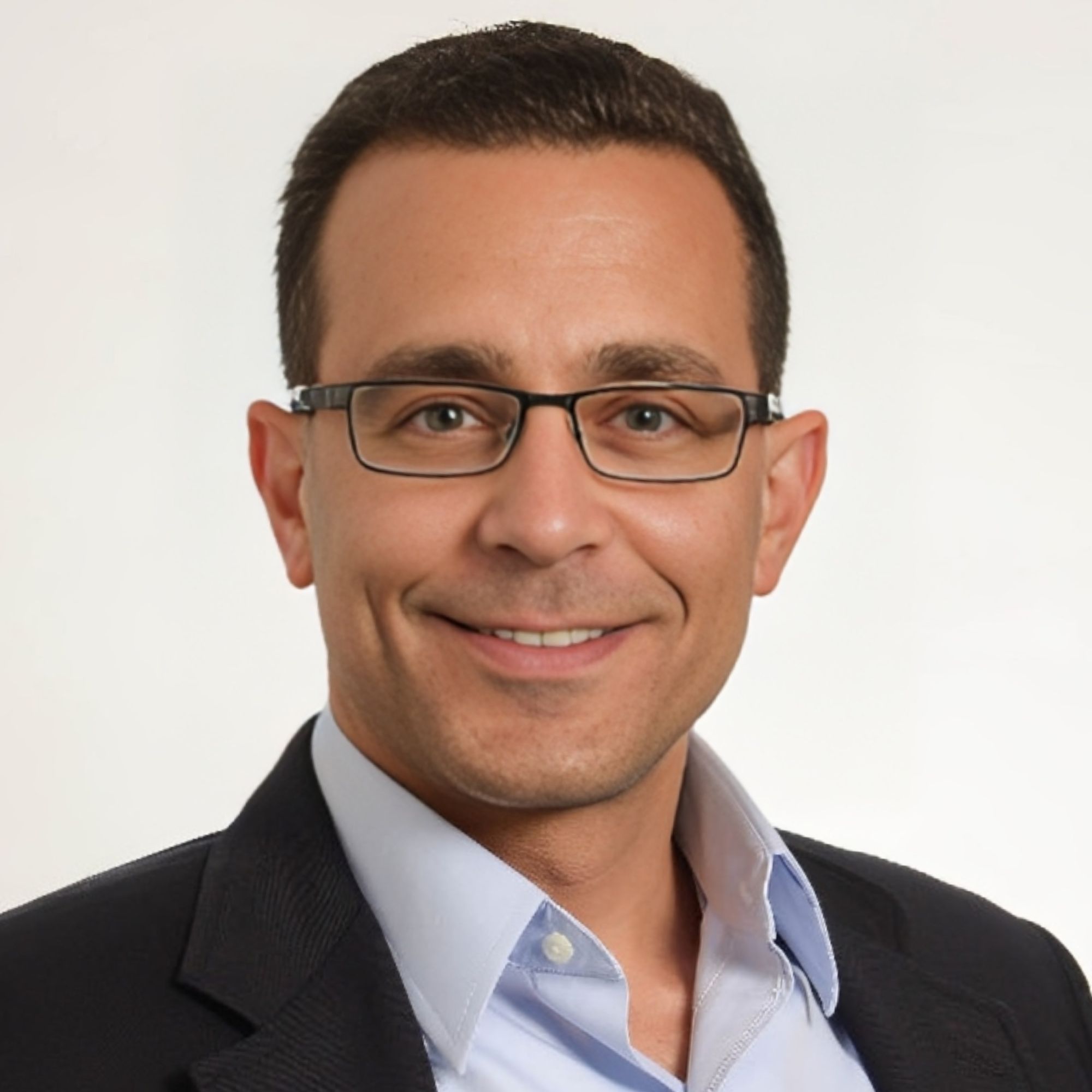
Todd Zion
Founder of Akston Biosciences
Todd Zion, Founder of Akston Biosciences: From a $500M Exit to Pioneering Biotech Innovation in Pet Health

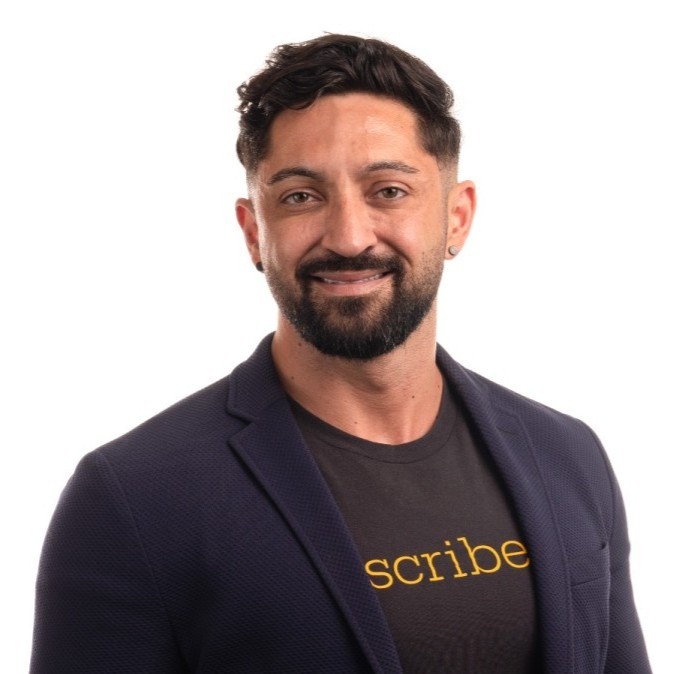
Brock Leonti
CEO & Co-Founder of Prescribe FIT
Brock Leonti, CEO & Co-Founder of Prescribe FIT: $15 Million Raised to Build the Future of Orthopedic Care


Alfred Griffin
CEO and Co-Founder of CEO and Co-Founder
Alfred Griffin, CEO and Co-Founder of LightForce: $150 Million Raised to Power the Future of Orthodontics

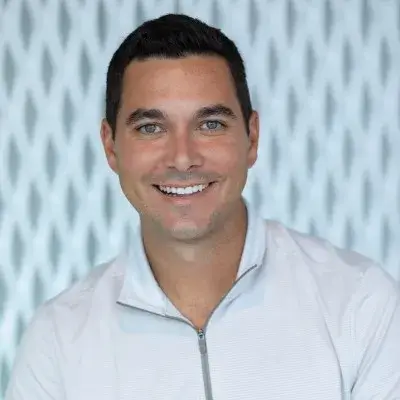
Matt Renfro
Co-Founder & CEO of Lynx
Matt Renfro, CEO of Lynx: $17.5 Million raised to Bring Modern Fintech to Healthcare


Aasim Saeed
CEO and Founder of Amenities Health
Aasim Saeed, CEO and Founder of Amenities Health: $10 Million Raised to Build the Future of Patient Engagement


Senan Ebrahim
CEO & Founder of Delfina
Senan Ebrahim, CEO & Founder of Delfina: $10 Million Raised to Build the Future of Intelligent Pregnancy Care

Dipanwita Das
CEO and Co-Founder of Sorcero
Dipanwita Das, CEO and Co-Founder of Sorcero: Over $20 Million Raised to Power Medical Affairs Teams of the Future


Joshua Miller
CEO and Co-Founder of Gradient Health
Joshua Miller, CEO & Co-Founder of Gradient Health: $5.7 Million Raised to Build the Future of Medical Imaging


Daniel West
CEO of Prospection
Daniel West, CEO of Prospection: $36 Million Raised to Build the Future of Patient-Centric Intelligence


Hala Borno
Founder and CEO of Trial Library
Hala Borno, Founder and CEO of Trial Library: $5M Raised to Improve Patient Recruitment and Diversity in Oncology Clinical Trials

Dr Thomas Oakley
CEO of Feedback PLC
Dr Thomas Oakley, CEO of Feedback PLC: £20 Million Raised to Build the Future of Patient Data Sharing


Alex Zekoff
CEO and Co-Founder of Thoughtful AI
Alex Zekoff, CEO and Co-Founder of Thoughtful AI: $21 Million Raised to Power the Future of Healthcare Automation


Danny Freed
CEO & Founder of Blueprint
Danny Freed, CEO & Founder of Blueprint: $13.7 Million Raised to Build the Future of Therapist Enablement


Dilpreet Sahota
CEO of Trek Health
Dilpreet Sahota, CEO of Trek Health: $3 Million Raised to Help Mental Health Providers Accept Insurance
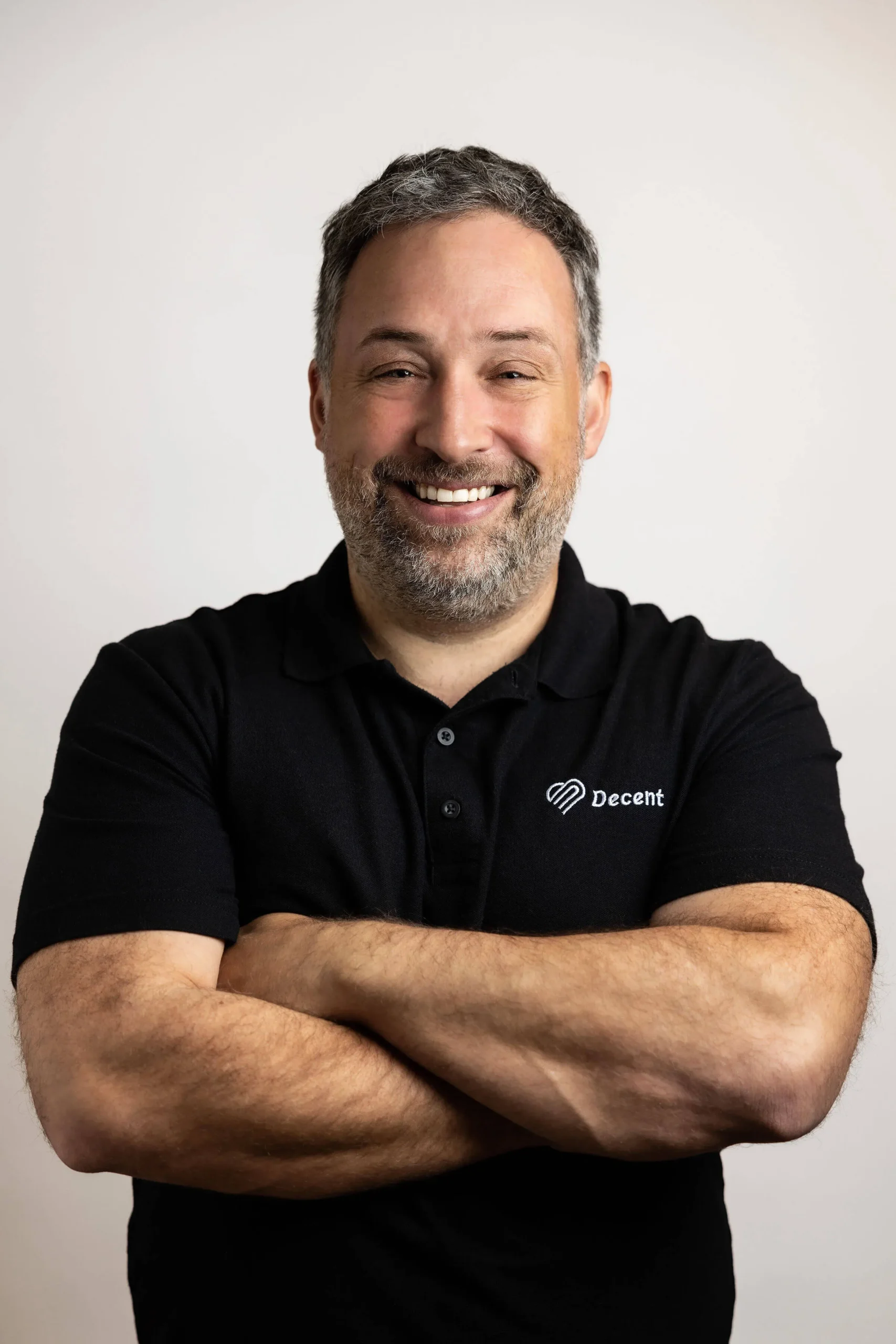
Nick Soman
CEO & Founder of Decent
Nick Soman, CEO & Founder of Decent: $43 Million Raised to Build the Future of Direct Primary Care

Kevin Flyangolts
CEO and Founder of Aclid
Kevin Flyangolts, CEO & Founder of Aclid: $4 Million Raised to Build the Future of Biosecurity


Kyle Kiser
CEO of Arrive Health
Kyle Kiser, CEO of Arrive Health: Over $40 Million Raised to Improve the Value of Healthcare Through Informed Decision-Making

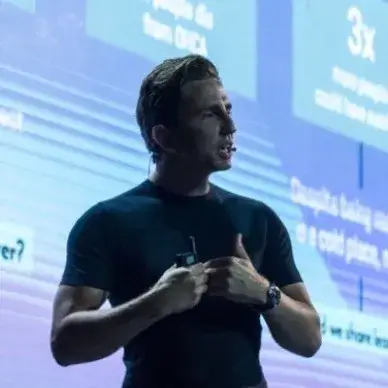
Andreas Cleve
CEO and Co-Founder of Corti
Andreas Cleve, CEO and Co-Founder of Corti: $32 Million Raised to Power the Future of Patient Consultations

James Bates
CEO and Founder of AdviNOW Medical
James Bates, CEO and Founder of AdviNOW Medical: $24 Million Raised to Build the Future of AI-Powered Healthcare


Kourosh Davarpanah
Co-Founder and CEO of Inato
Kourosh Davarpanah, Co-Founder and CEO of Inato: Over $35 Million Raised to Build the Future of Clinical Trials

Trey Sutten
CEO & Co-Founder of Siftwell Analytics
Trey Sutten, CEO & Co-Founder of Siftwell Analytics: $5 Million Raised to Transform Healthcare Analytics with AI-Powered Predictions


David Berry
CEO and Founder of Valo
David Berry, CEO and Founder of Valo: Over $500 Million Raised to Build the Future of Drug Discovery

Ben Albert
CEO & Co-Founder of Upfront Healthcare
Ben Albert, CEO & Co-Founder of Upfront Healthcare: $30 Million Raised to Power the Future of Patient Engagement


Daniel Lambert
CEO of PathologyWatch
Daniel Lambert, CEO of PathologyWatch: Over $50 Million Raised to Build the Future of Digital Pathology


Henry O’Connell
CEO & Founder of Canary Speech
Henry O’Connell, CEO & Founder of Canary Speech: $26 Million Raised to Build the Future of Vocal Biomarker Technology

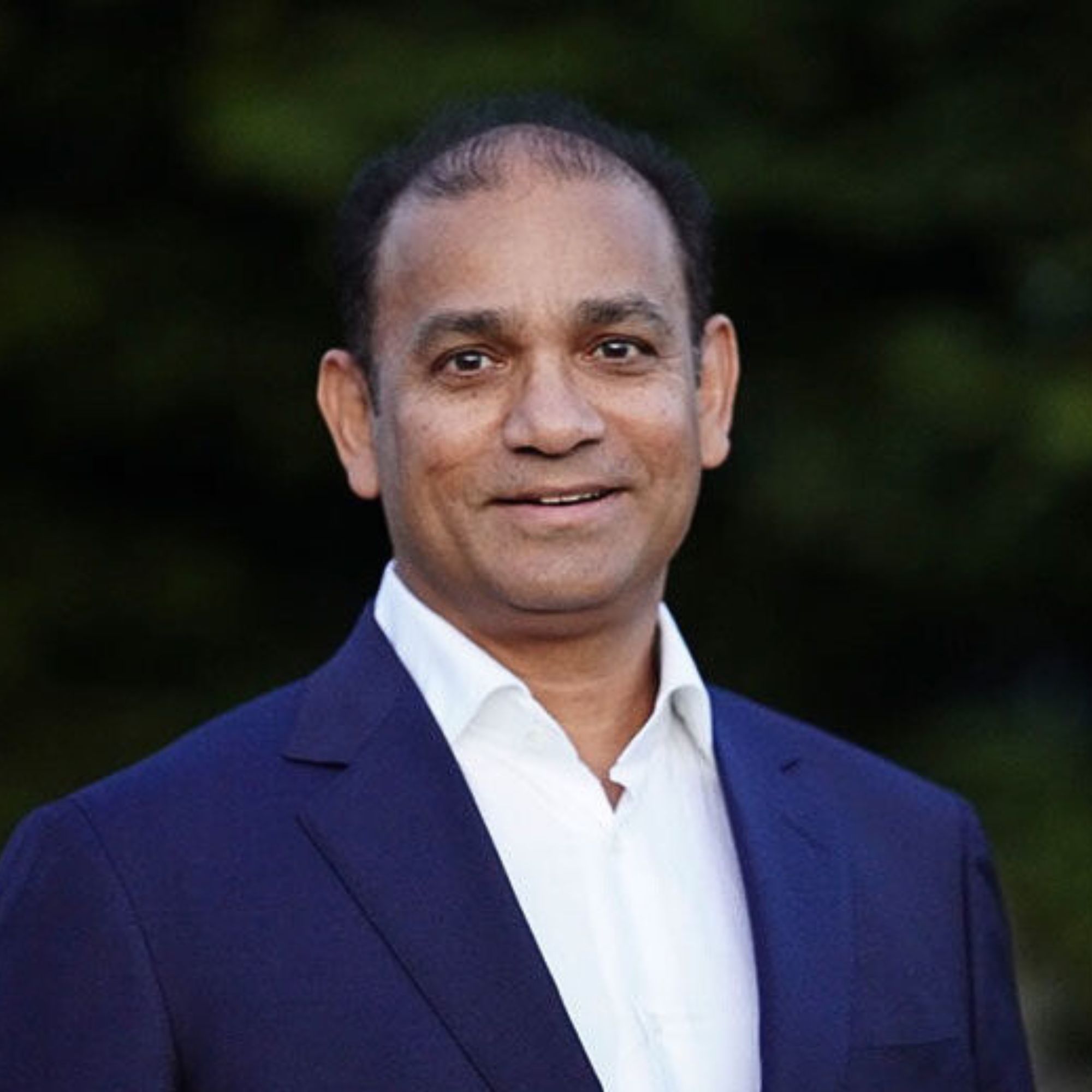
Mahesh Veerina
CEO of ParkourSC
Mahesh Veerina, CEO of ParkourSC: $90 Million Raised to Pioneer Dynamic Decision Intelligence for Supply Chain Networks

Amar Kendale
President and Co-Founder of Homeward
Amar Kendale, President & Co-Founder of Homeward: $70 Million Raised to Transform Rural Healthcare Through Technology


Ty Allen
CEO of SocialClimb
Ty Allen, CEO of SocialClimb: $12 Million Raised to Power the Future of Healthcare Marketing


Amy Brown
CEO and Founder of Authenticx
Amy Brown, CEO and Founder of Authenticx: $28 Million Raised to Build the Future of Listening AI


Joseph Schneier
CEO of Trusty Care
Joseph Schneier, CEO of Trusty Care: $13+ Million Raised to Shape the Future of Medicare


Matthew Stoudt
CEO and Founder of AppliedVR
Matthew Stoudt, CEO and Founder of AppliedVR: Over $70 Million Raised to Build the Future of Chronic Pain Relief


Derek Streat
Co-Founder & Chief Executive Officer of Dexcare
Derek Streat, CEO of Dexcare: $110 Million Raised to Help Health Systems to Find Time for the Best Care


Thomas Knox
CEO & Founder of VitVio
Thomas Knox, CEO & Founder of VitVio: $10 Million Raised to Transform Surgical Operations Through AI-Powered Automation


Verena Gerhardus
Director of Growth of Nelly Solutions
How Nelly Grew 3X Through Meta Ads in Health Tech


Viral Patel
Founder and CEO of Radish Health
Viral Patel, CEO of Radish Health: $5 Million Raised to Connect Employees with a Better Healthcare Experience
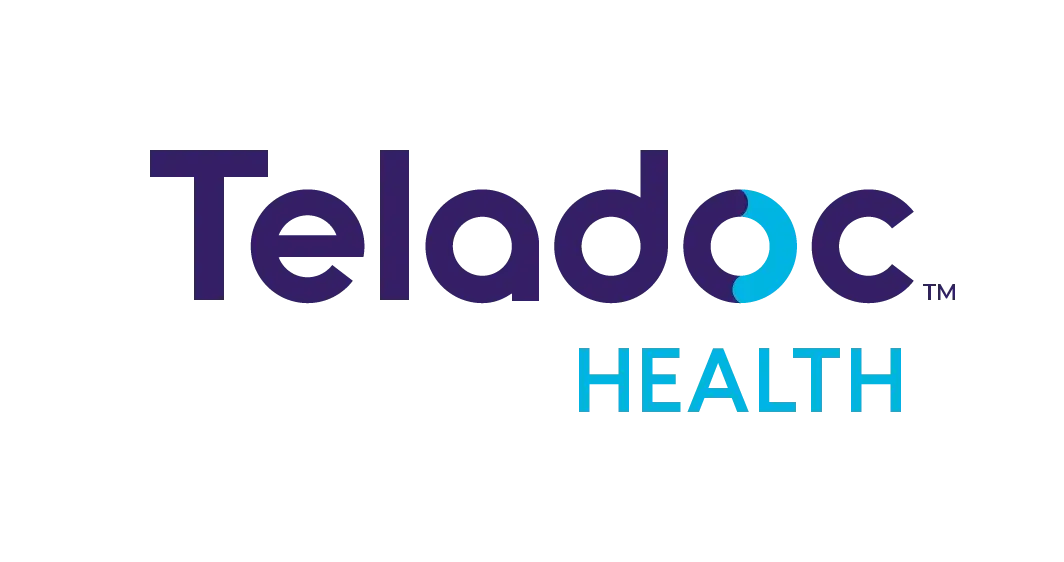

Michael Gorton
Founder of Teladoc
Teladoc Founder Michael Gorton on the Early Days of Pioneering the Telemedicine Category (And What’s He’s Up to Next)


Samson Magid
Co-Founder and CEO of HealthSnap
Samson Magid, Co-Founder and CEO of HealthSnap: Over $12 Million Raised to Build the Future of Remote Patient Monitoring


Michael Chang
Mastering Market Fit in AI: Insights from Michael Chang, Director of Marketing at ArteraAI


Richard Queen
CEO and Co-Founder of DignifiHealth
Richard Queen, CEO and Co-Founder of DignifiHealth: $7 Million Raised to Drive Better Patient Outcomes in Rural Healthcare and Beyond


Elad Ferber
CEO & Co-Founder of Synthpop
Elad Ferber, CEO & Co-Founder of Synthpop: $8 Million Raised to Build the Future of Healthcare Administration with AI

Veer Gidwaney
CEO & Founder of Ansel Health
Veer Gidwaney, CEO & Founder of Ansel Health: $50 Million Raised to Transform Supplemental Health Insurance


Cesar Herrera
CEO and Co-Founder of Yuvo Health
Cesar Herrera, CEO and Co-Founder of Yuvo Health: $28 Million Raised to Revolutionize Healthcare Access

Torben Nielsen
CEO & Co-Founder of Uptiv Health
Torben Nielsen, CEO of Uptiv Health: $7.5M Raised to Build the Future of Infusion Therapy Through Technology-Enabled Retail Centers
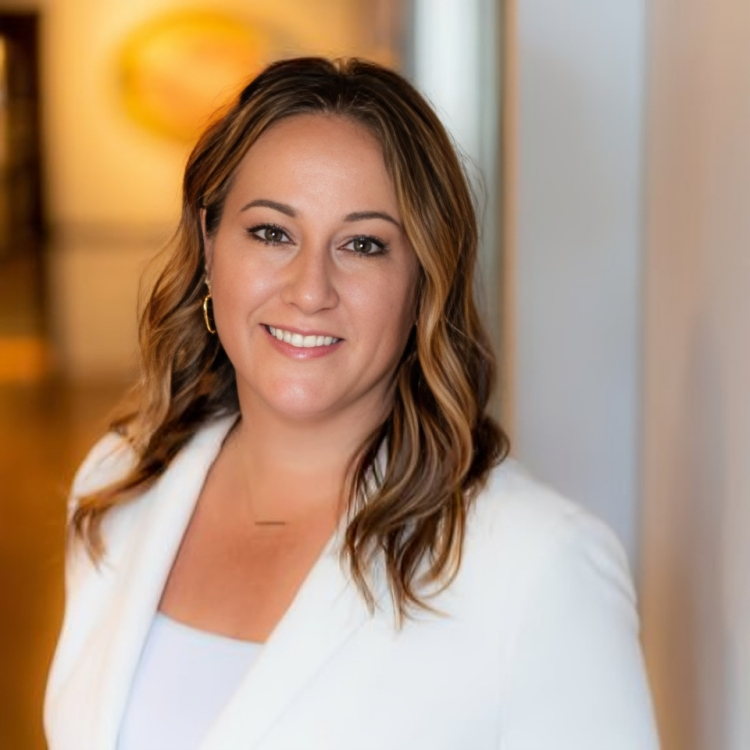
Kristen Valdes
CEO & Founder of B.well
Kristen Valdes, CEO & Founder of B.well: $100 Million Raised to Reimagine the Healthcare Experience


Joe Gagnon
CEO of 1upHealth
Joe Gagnon, CEO at 1upHealth: Over $75 Million Raised to Build the Future of Healthcare Data
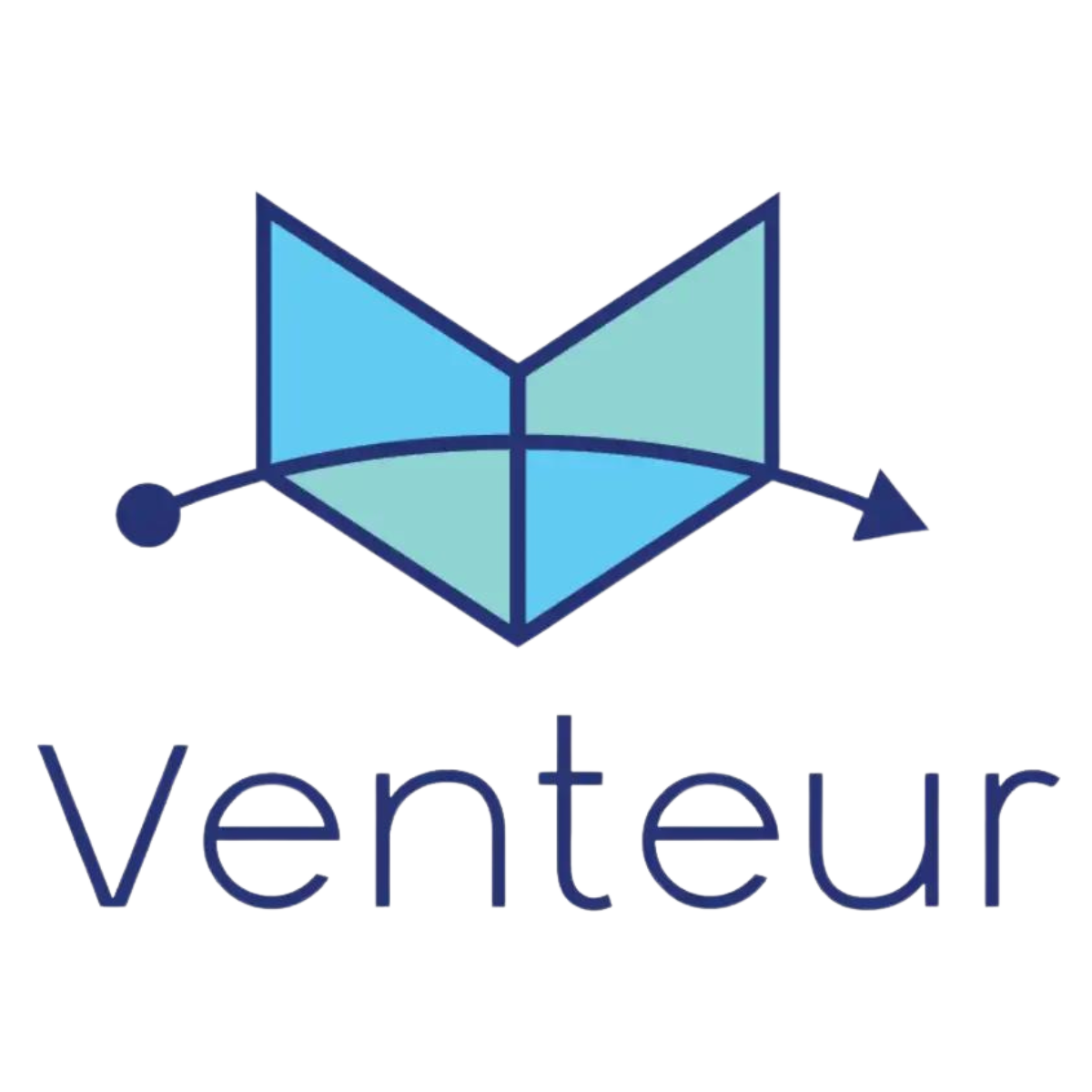

Stacy Edgar
CEO and Co-Founder of Venteur
Stacy Edgar, CEO & Co-Founder of Venteur: $7.6 Million Raised to Build the Future of Health Insurance


Rishi Nayyar
CEO and Co-Founder of PocketHealth
Rishi Nayyar, CEO and Co-Founder of PocketHealth: $22.5 Million Raised to Power the Future of Medical Image Sharing


Brett Kleger
CEO of Datacubed Health
Brett Kleger, CEO of Datacubed Health: $43 Million Raised to Revolutionize Clinical Trial Data Collection


David King Lassman
Founder of GigXR
David King Lassman, Founder of GigXR: $7 Million Raised to Bring Immersive Learning to Healthcare


Mark Lehmkuhle
CEO & Founder of Epitel
Mark Lehmkuhle, CEO & Founder of Epitel: $20 Million Raised to Build the Future of Brain Health Monitoring


Dr. Nan-Wei Gong
CEO and Founder of FIGUR8
Dr. Nan-Wei Gong, CEO & Founder of FIGUR8: $40 Million Raised to Build the Future of Musculoskeletal Health and Injury Data Solutions


Itzik Cohen
Co-Founder and CEO of PayZen
Itzik Cohen, Co-Founder and CEO of PayZen: $240 Million Raised to Build the Future of Affordable Health Care


Ignacio Medrano
Founder & CMO of Savana
Ignacio Medrano, Founder & CMO of Savana: $44M Raised to Transform Healthcare Intelligence Through AI


Vicky Demas
CEO of Identifeye Health
Vicky Demas, CEO of identifeye HEALTH: $90 Million Raised to Power the Future of Retinal Imaging

Austin McChord
CEO of Casana
Austin McChord, CEO of Casana: Over $46 Million Raised to Create the Future of In-Home Health Monitoring


Trenor Williams
CEO and Co-Founder of Socially Determined
Trenor Williams, CEO and Co-Founder of Socially Determined: $34 Million Raised to Build the Social Risk Intelligence Category


Rafid Fadul
CEO and Co-Founder of Zivian Health
Rafid Fadul, CEO and Co-Founder of Zivian Health: $3 Million Raised to Power the Future of Compliant Healthcare Collaborations

Justin Dearborn
Founder & CEO of Praia Health
Justin Dearborn, Founder & CEO of Praia Health: $20 Million Raised to Build the Future of Consumer Experience in Healthcare


Armon Sharei
CEO & Founder of Portal
Armon Sharei, CEO & Founder of Portal: $5 Million Raised to Power the Future of Cell Engineering

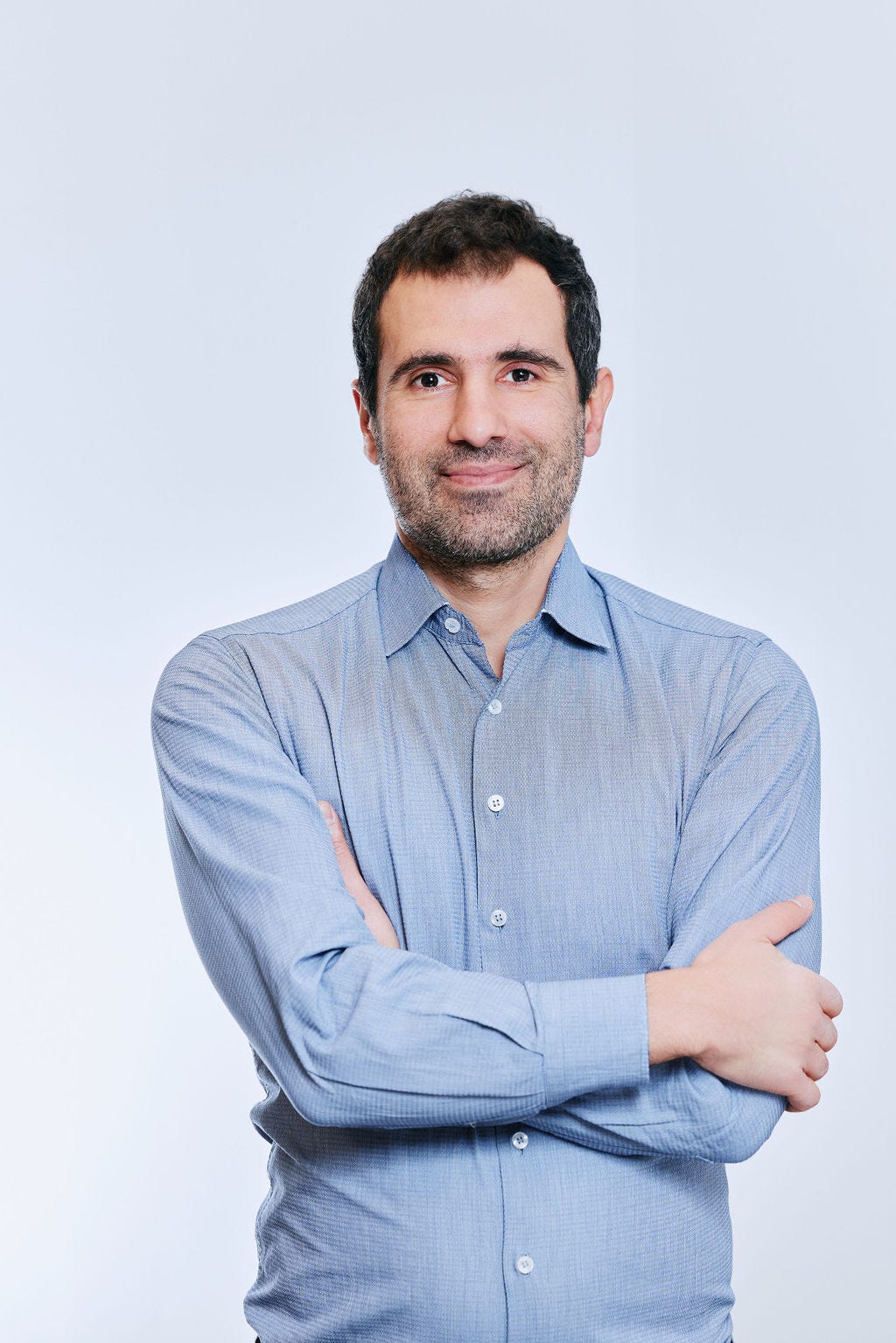
Dimitrios Skaltsas
CEO & Co-Founder of Intelligencia AI
Dimitrios Skaltsas, CEO & Co-Founder of Intelligencia AI: $15.5 Million Raised to Build the Future of Drug Development

